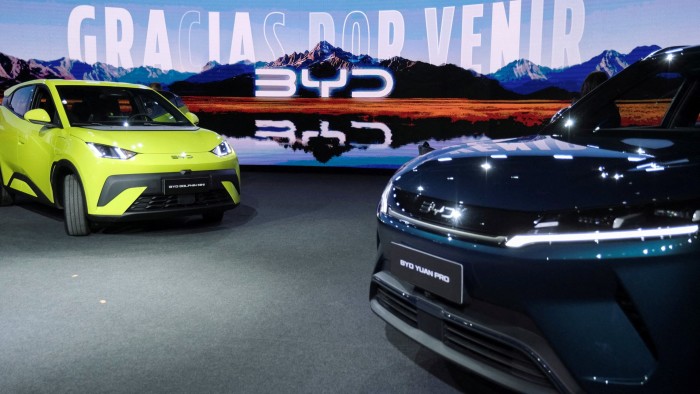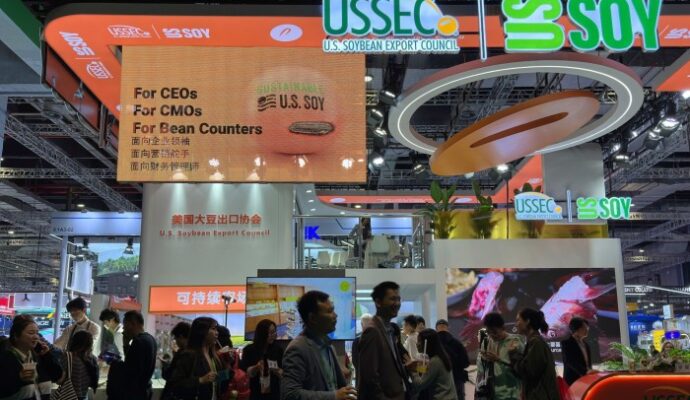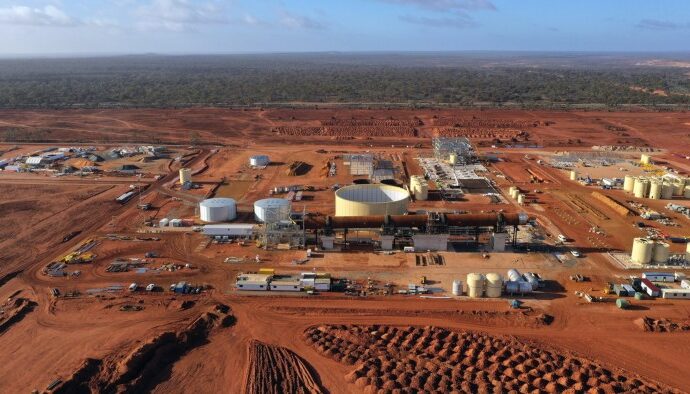
This article is an on-site version of our Moral Money newsletter. Premium subscribers can sign up here to get the newsletter delivered twice a week. Standard subscribers can upgrade to Premium here, or explore all FT newsletters.
Visit our Moral Money hub for all the latest ESG news, opinion and analysis from around the FT
The historic significance of China’s rise as the world’s clean energy superpower is only just beginning to be understood.
There are more questions than answers but there should, by now, be little doubt that China is on a path to being the global leader in a panoply of decarbonisation technologies.
While much ink has already been spilled on how Europe and the US should respond, the reverberations for the developing world have been neglected. This belies the potential impact of low-cost Chinese clean technology: governments around the world now have a realistic avenue to end their reliance on fossil fuel imports and to decarbonise their transport and heavy industry sectors.
Electric vehicles are a fascinating sector at the vanguard of this megatrend. For today’s newsletter, I interviewed Ilaria Mazzocco, one of the world’s leading experts in Chinese industrial policy and EVs.
In her latest report, Ilaria, alongside colleague Ryan Featherston at the Center for Strategic and International Studies in Washington, have investigated the impact of the rise of EVs in emerging markets.
Beyond the interview, I would encourage people to check out the full report. As Ilaria and Ryan point out, there are important lessons for the future of the auto industry, as well as how industrial policy can work or fail and the role of Chinese investment.
Ilaria is based in Washington, so I interviewed her by phone from Shanghai for Moral Money. The interview has a few minor edits for clarity and brevity.
Financial Times: Why has China’s rise as an EV superpower stunned so many people in the west?
Ilaria Mazzocco: This is an area where it’s very visible and very clear that China is ahead.
Some other areas of US-China tech competition are more neck-and-neck. When it comes to clean energy technologies, these have not been invented in China, but China has taken them to a whole other level.
With EVs, the automotive sector really elicits an emotional response from people; it’s just so important in so many countries.
FT: There’s a lot of talk around de-globalisation broadly, but also specifically decoupling from China. Does this ring true in EV supply chains?
IM: I don’t see that happening for a lot of the world. Certainly, for the United States, you do see far less integration and they’re making it a lot harder to have integrated value chains with China in the automotive sector.
But in a lot of other countries, the trend is quite the opposite. Countries are becoming more dependent on Chinese value chains.
FT: For your report you looked at different countries’ approaches to the EV transition; were there any consistent through lines between the countries?
IM: One is that there’s a lot of eagerness to adopt this new technology.
We struggled to find an example of a big emerging market that didn’t have a plan or strategy for EV. Even South Africa, which has been a laggard in adoption and has no manufacturing for EVs or components, the government has recognised this is a key technology. Obviously, this clashes with the United States where EVs and a lot of clean energy technologies have become really part of the partisan debate.
In other countries, governments are thinking about how many jobs could this create? Or how many jobs will we lose? Geopolitics do matter and nobody is a fool here. Everybody knows what it means to tie yourself to one superpower or another. But as many of these countries are dependent on foreign direct investment anyway, there is a lot of interest in getting FDI from China in what is seen as the new cutting-edge technology.
FT: Some countries are trying to leverage Chinese technology and investment to move up the value chain; Indonesia is an example. What is your sense of China’s willingness to genuinely support that?
IM: That’s the billion-dollar question. We just don’t know yet if this is going to work. It takes a long time for companies to localise production; there are issues with talent, with infrastructure. Many of these factories are being built now, so we will only know in four or five years how much they have localised production.
There’s also a question here of maybe the Chinese companies wanting to become more like multinationals, but will the Chinese government allow them to? In batteries, signals are being sent from Beijing that they want the core technology to stay in China. We should be watching very carefully. I think that there is no pre-determined outcome.
That’s why in this report I wanted to look at how these emerging countries are interacting with Chinese investment and trade, because a lot will depend on industrial policy in these countries and how they leverage their own markets and resources to gain more localisation from Chinese investors.
FT: Could we be in a situation where the developing world moves faster than many developed countries when it comes to having a cleaner transport system?
IM: Some countries are going to take a very long time to transition. In Africa, in particular, I don’t see evidence of countries moving quite so quickly. But there is this potential leapfrogging effect, where there is less car ownership in a lot of these countries, so if you make available a lot of electric vehicles, that transition could happen more rapidly.
Just as if you bring solar panels into a country where electrification rates are low, you can skip ahead. But we are just at the start of it. So, there is this “word of caution”. It is hard to draw conclusions for 10, 20 years from now when we only have data for two years.
FT: Where do you see the long-term impact for the US if we follow the trajectory that China does massively deepen its influence in the developing world through these transition technologies?
IM: There are people who would argue this doesn’t matter, that the US actually doesn’t export that many cars to developing markets, or at least it’s not where the bulk of the profits are for US automakers, and the US is a very protected market so they’re unlikely to threaten the US automakers directly.
But given the long-term trends in technology, there is a risk that the US misses the boat. There are good arguments that the US should be focusing on developing alternative battery chemistry, for example, but this is not a key priority at the moment. US automakers today have very little political incentive, or policy incentives, to focus on electric vehicles. Historically, when you have industries that are operating with little competition, and they’re not operating in global markets, that is not a recipe for innovation. The risk is that the US could end up, in 10 or 20 years, with a far less competitive automotive market while the rest of the world has moved on to a different technology and is far more integrated with China.
Smart read
As I wrote at the outset, China’s rise as a cleantech superpower is a megatrend of historic significance that is yet to be fully understood.
Kaiser Kuo, a veteran China watcher, has an essay, aptly titled “The Great Reckoning”, which thoughtfully canvasses the intellectual challenge in accepting China as it is today.
As he writes: “Even those of us who have followed China closely, who pride ourselves on seeing past Western prejudices, have found it difficult to fully absorb what we are witnessing.”


